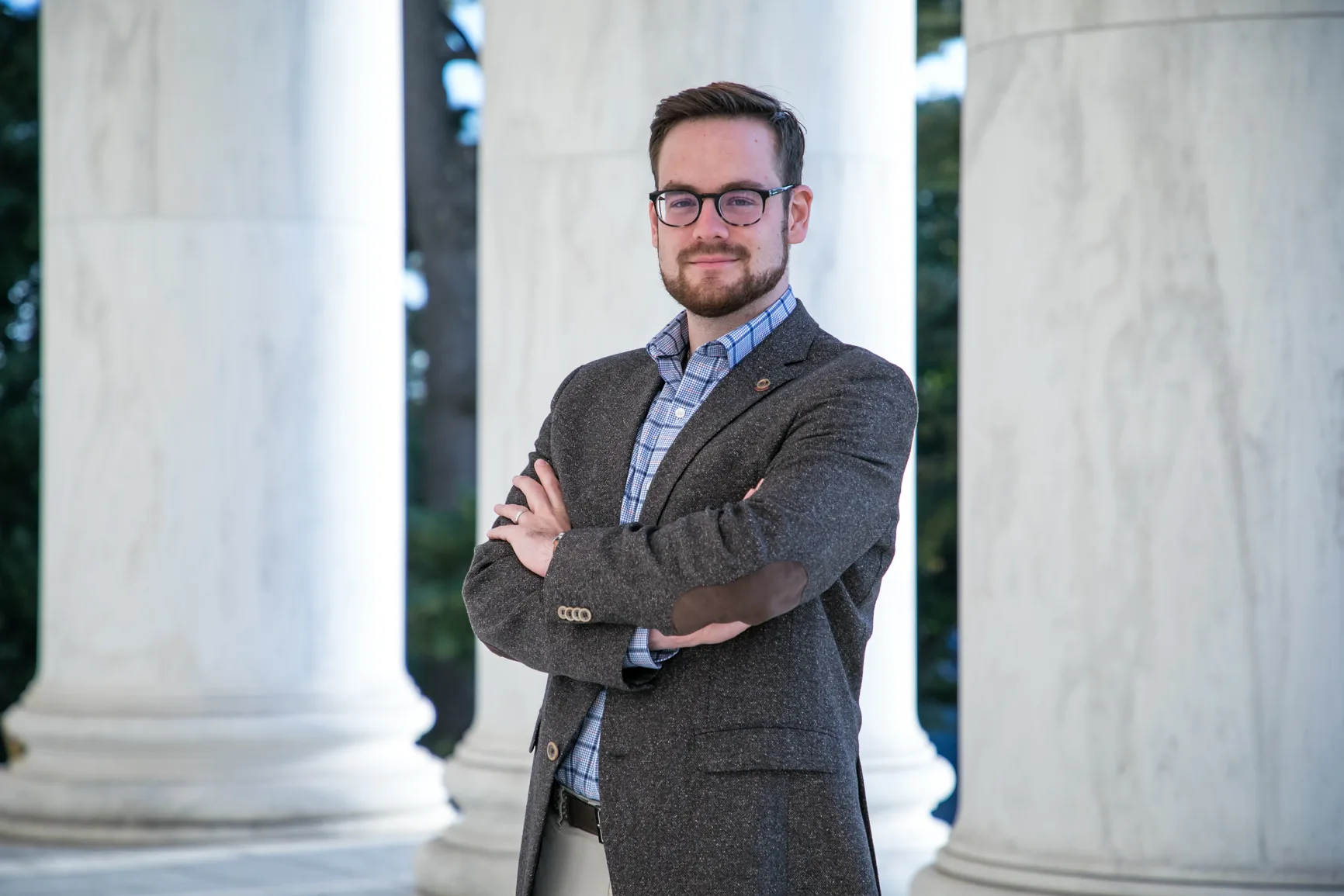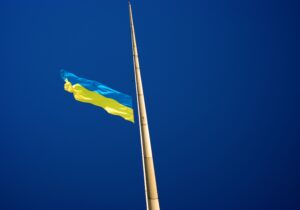Listening to Republican Presidential candidate Vivek Ramaswamy’s comments at the 3rd Republican primary debate or Tucker Carlson’s October interview with Robert Amsterdam, one might easily get the message that Putin is a hero and Zelensky a tyrant. Ramaswamy and Carlson both believe there is no reason for Ukraine to ever restrict the activities of any Christian group within its territory, no matter what. We beg to differ.
The Ukrainian parliament’s move to restrict the activities of the Ukrainian Orthodox Church of the Moscow Patriarchate (UOC-MP), the Eastern Orthodox church in Ukraine historically linked to the Russian Orthodox Church currently led by Patriarch Kirill, once again shows that the cultural/religious landscape in Eastern Europe is a totally essential yet completely misunderstood element of the war. The Russian Orthodox Church (ROC) is not a church in the sense that most Americans understand Christian congregations as distinct entities from the government. In the Kremlin’s playbook, the ROC is an extension of the state and should therefore act like it, at home and abroad. For Putin, religion represents no inherent value; it is just another tool of warfare, another cog in Russia’s war machine. Current and aspiring policymakers in the West need to understand that in wartime, churches that essentially operate as propaganda arms and agents of an invading foreign power should be treated as such.
How Russia’s National Security Doctrine Devoured the Orthodox Church.
Using religion as a tool of statecraft is nothing new. In the modern Russian playbook, the Orthodox Church is primarily a vehicle for furthering certain national security interests.
Vladimir Putin’s first administration in 2000 introduced the doctrine of “spiritual security” in Russia’s National Security Concept (RNSC). What gives the first RNCS significance is that, unlike in the US where these papers serve as temporary political guidance, Russia’s was signed into law and has therefore been a legally binding document for over two decades.
Under the RNSC, the boundaries between national security and religion, church, and state were deliberately blurred. The legislation detailed that “Assurance of the Russian Federation’s national security also includes protecting the cultural and spiritual-moral legacy and the historical traditions and standards of public life and preserving the cultural heritage of all Russia’s peoples.”
As Putin embraced his mission to restore Russian greatness, the RNSC effectively made the Orthodox Church a tool of Russian imperialism. Putin even went so far as to compare the significance of having a vast nuclear arsenal to safeguarding Russian Orthodoxy. In his 2007 speech delivered on the occasion of the reunification of the US-based Russian Orthodox Church Abroad with the mother church in Russia, Putin named Russia’s “traditional faiths” and its nuclear missile shield as two “components that strengthen Russian statehood and create necessary preconditions for internal and external security of the country.”
The phrase “spiritual-moral values and legacy” appeared with increasing prominence in the ensuing Russian security concepts of 2009, 2015, and 2021. The election of Dmitry Medvedev as the new president in 2009 changed nothing on the policy set by Putin’s preceding two terms. Although the National Security Strategy of the Russian Federation of 2009 was officially drafted under Medvedev, the preparation was coordinated by Nikolai Patrushev. Patrushev served as the Director of the FSB – successor to the KGB – between 1999 and 2008, and since then has been the Secretary of Russia’s Security Council, which is the strategic planning hub for the Kremlin. So it is not by chance that in 2009 Kirill, who was an active officer of the KGB, sharing Putin’s global and domestic ambitions was enthroned as the Patriarch of Moscow after the “sudden” death of Alexy II. The new patriarch turned out to be an eager partner in further deepening church and state relations.
The legal and moral foundation created by the Putin-Patrushev duo and a willing patriarch at the helm of the ROC created the grand narrative of Russia as a quasi-messiah committed to protect Christianity from the declining West and safeguard Russia’s historic legacy originating in Ukraine. The subsequent years saw the ROC essentially morphing into the guardian of the Kremlin’s truth and therefore a de facto extension of the state. This “annexed status” is best illustrated by the fact that the ROC takes an active part in the Nuclear Command of Russia, as well as consecrating weaponry destined for Syria and Ukraine.
The consolidation of the ROC’s rebranded role is unmistakable in a range of official actions and documents. Spiritual and moral values are mentioned abundantly in the amended Constitution of 2020 and in the Concept of Foreign Policy of the Russian Federation of 2022 and 2023. The Kremlin-ROC spiritual partnership resulted in a palpable and mounting abandonment of the constitutional doctrines of secularism and church-state separation in Russia’s foreign policy.
As a result of this decades-long transformation, Russia’s current (2021) National Security Concept can be interpreted as a manifesto of a new era. The document accentuates the safekeeping of religious, cultural, and moral values as a prerequisite for the security of the Russian state. The word “spiritual” is mentioned 24 times versus 4 in the first version of 2000, this time it also names the U.S. as a specific external threat.
Spiritual Security in Action: Russia’s Old – New Ambitions
In Putin’s so-called “Crimean Speech” of 2014, Putin justified and connected the annexation of Crimea to the spiritual and moral obligation to protect Russia’s legacy: “the prince’s (Volodymir) conversion to Eastern Orthodoxy, which took place in 988, has predetermined the general basis of culture, civilization and human values uniting the peoples of Russia, Ukraine and Belarus” In a longwinded article ‘On the Historical Unity of Russians and Ukrainians’ in July 2021 – shortly after the new RNSC was signed into a law – he further elucidated on the spiritual prominence of Ukraine: “Russians, Ukrainians, and Belarusians are the same people whose “common baptismal font” is Kyiv, which is the “mother of all Russian cities.” Just three days before the full-scale invasion of Ukraine, Putin unambiguously vindicated the war with the protection of the Orthodox faith against a purported Nazi regime and once again declared Ukraine as part of Russia’s common “spiritual space” and highlighted the importance of the “protection of “spiritual and moral values.” In close lockstep with Putin, Patriarch Kirill famously declared that dying in Ukraine “Washes away all sins.”
The invasion of Ukraine was not the first “crusade” of Putin’s Russia. As a matter of fact, the very same doctrine of “spiritual security” also provided the “Holy War” framework for the military intervention in support of the Assad regime in 2015 in Syria.
Ukraine’s Effort to Break the ROC’s Influence.
Ukrainian Orthodoxy had been seeking autonomy from the swelling ROC spiritual influence since Ukraine gained independence in 1991. The ROC’s burgeoning role in forming and amplifying the Kremlin’s foreign policy narrative contributed to growing rifts within Orthodoxy, culminating in the acknowledgement of the Orthodox Church of Ukraine’s (OCU) independence by the Ecumenical Patriarch of Constantinople Bartholomew I in 2019, followed by the Patriarchs of Greece and Alexandria later that year. The tomos precipitated what some believe is one of the most momentous splits in Orthodox church affairs between Moscow and Constantinople in more than a thousand years of history. Yet, the Ukrainian Orthodox Church linked to the Moscow Patriarchate still operates in Ukraine. At the same time, the current ‘Holy Synod of the Russian Orthodox Church’s permanent membership includes metropolitans (bishops) of ‘All Ukraine’.
All in all, the succession of RNSC’s clearly demonstrates how the lines between church and state have been blurred to satisfy Putin’s imperial ambitions. The motivation to maintain spiritual authority in Ukraine is a national security imperative and a legal and moral obligation for Russia. Therefore, the ROC’s continued presence in Ukraine through the UOC-MP in Ukraine can be interpreted as a matter of national security amid Russian aggression. War is not only fought on the green pastures of Ukraine. In Putin’s multidomain war, religion has become a battlefield affirmed by Russia’s National Security Strategy.








 Sponsor a student for Christianity & National Security 2024
Sponsor a student for Christianity & National Security 2024